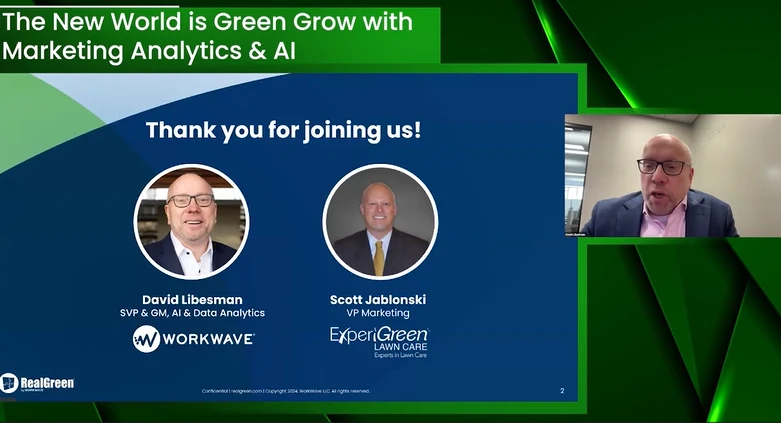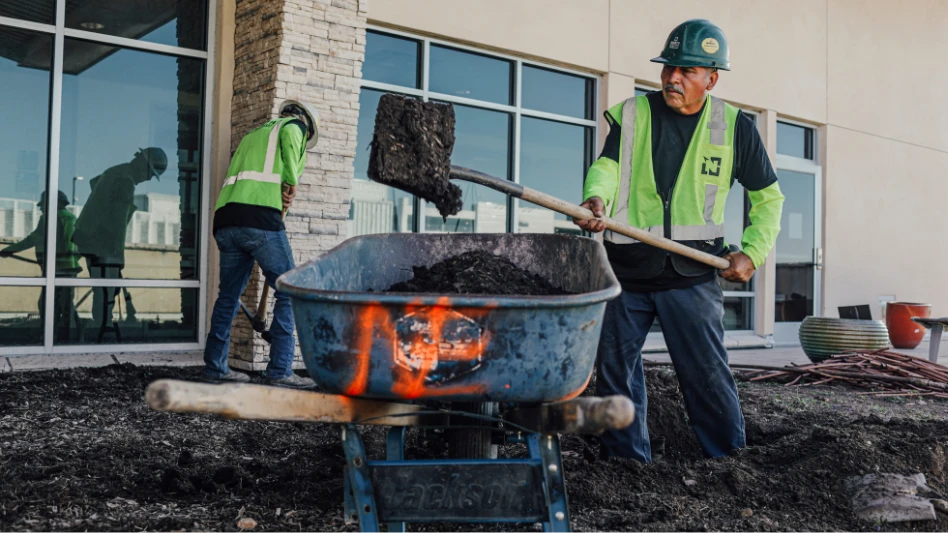Mario Hernandez likened a company to the human body, suggesting that the people are at the heart of the business and the team’s finances are the brain.
If all of that’s true, then Hernandez says the culture is the blood, flowing through all parts of the business.
“It sets the precedent for which way you’re going,” says Hernandez, the president of Royal Landscaping. Hernandez joined Charlene Chacon, Brent Moore, Zack Stratton and moderator Brad Stephenson during a panel discussion on culture at Lawn & Landscape’s inaugural Business Builders Summit.
Moore says everyone has different definitions of culture, but he aligned with the other panelists in saying that it largely comes down to core values. If folks can’t get in line with that, no matter what background they have, they’re unlikely to last at his company, Outdoor Living Southeast. Chacon, who is residential team manager at DesignScapes Colorado, says the core values also help define what quality of work they’re doing for the clients.
And Stratton, the CEO of Elite Grounds + Stratton and Bratt, agrees.
“We basically all mow the grass pretty well and generally, the differentiator is our culture,” Stratton says. “We hire, fire and promote based on that.”
CULTURE MISTAKES. But as companies grow – whether that’s organically or through infusion of private equity money – maintaining a consistent culture becomes more difficult. Stratton says he would often promote people for spots they weren’t ready to manage, which was detrimental to the employee and the company alike.
Meanwhile, Chacon says hiring the wrong employees in the first place is a problem. Often, she prefers finding employees who have “bright eyes,” who appear to be motivated and driven.
“That’s more valuable than looking at a resume with all these bullet points,” Chacon says.
Moore admits that one of his biggest mistakes is not getting rid of “culture killer” employees fast enough. But part of that also comes with leading by example – Moore adds that when it’s particularly hot in that Georgia heat, attitudes start flying and testosterone’s running, it can be easy to be agitated in front of others.
“From a leadership standpoint, whenever the leaders walk into the morning and we’re agitated, we set the tone for the day,” Moore says.
Hernandez adds that this leadership is vital. As he’s tried improving his team’s culture around safety, he’s noticed it was much easier when there were just a handful of employees. Now that Royal Landscaping’s exceeded 60, it’s tougher.
So, when the employees see Hernandez riding around on mowers without safety glasses, they think it’s okay to do that, too.
“When you’re a leader, you have to lead by example,” he says. “That’s something you really have to embody every day.”
CULTURE BUILDING BLOCKS. The panelists all pointed out things they’ve noticed have helped bolster their company’s’ respective cultures.
Chacon says finding ways to celebrate business awards like on team safety is important.
“They understand that together as a company, we earned this recognition,” she says. “That helps to keep this culture component together.
Moore says quarterly, offsite meetings have lifted team morale. In one instance, Outdoor Living Southeast paid everyone for eight hours and took them out in Jacksonville to play airsoft and eat at a Brazilian steakhouse. He says some of the restaurant meals that leadership takes for granted are opportunities rarely afforded to all of their employees.
“A lot of these guys never ate a $30, $40, $50 meal before,” Moore says.
Hernandez says he’s also found talking to his employees in their native language is important. Stratton agrees, adding that everyone on his leadership team is bilingual. They list everything on signage around the office in both languages but list Spanish first.
“Meeting the people where they are is really key,” he says. “That really resonates with a lot of our guys. We’re stewards of our business. That’s just really key. It’s just created a really good atmosphere.”
Latest from Lawn & Landscape
- Ever-changing landscape of SEO
- Fleetio acquires Auto Integrate, raises $450M in Series D funding
- Davey Tree expands in St. Paul, promotes Ostlie to district manager
- Schill Grounds Management taps 3 for senior leadership roles
- HD Hyundai Construction Equipment North America adds to wheeled excavator lineup
- High maintenance
- From Design to Proposal: Estimating and Rendering Support Services
- PERC adds Joel Stutheit as senior manager of business development






